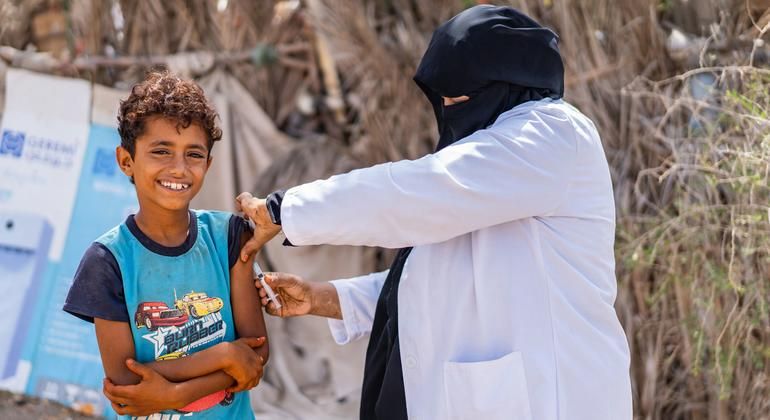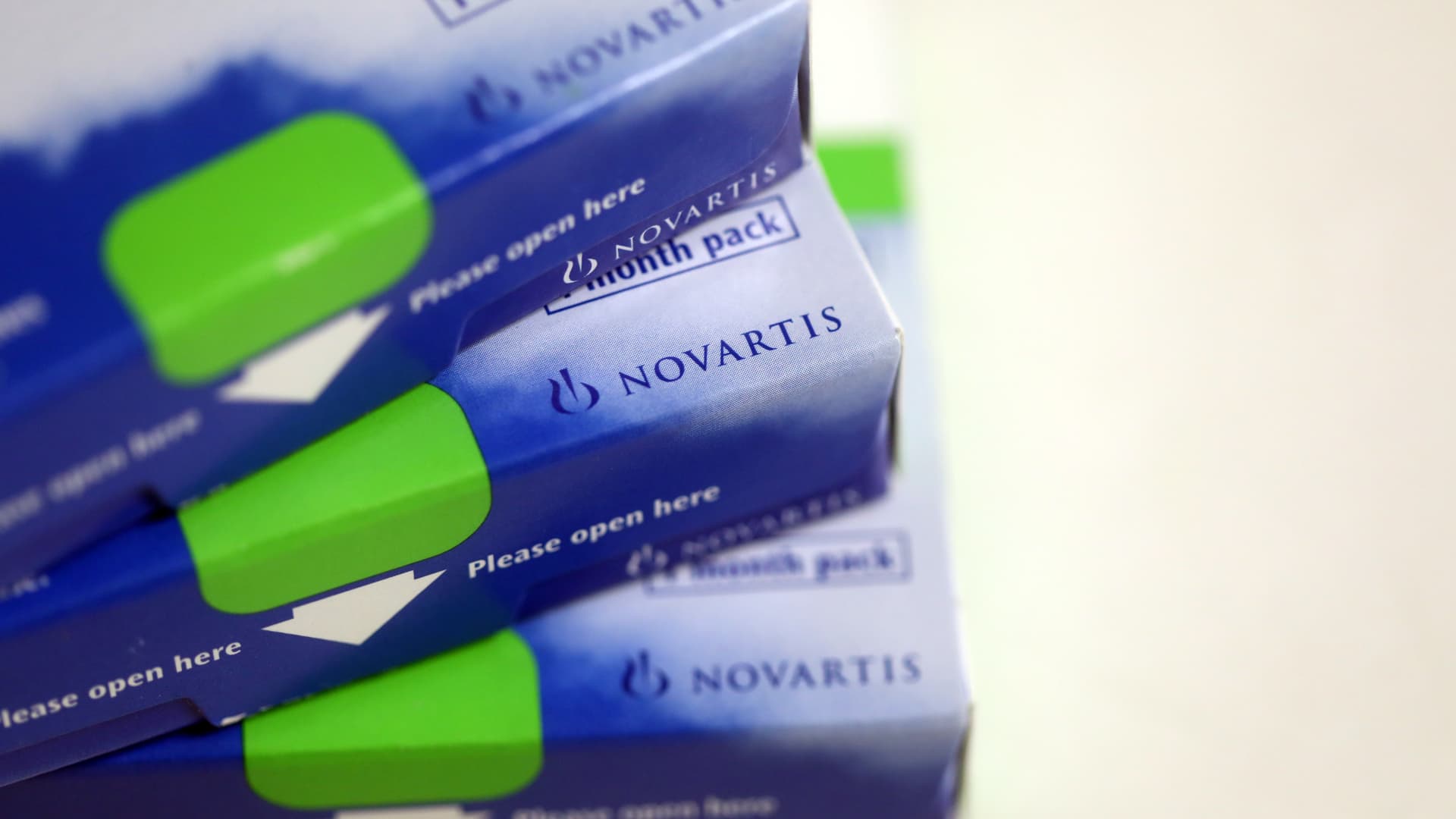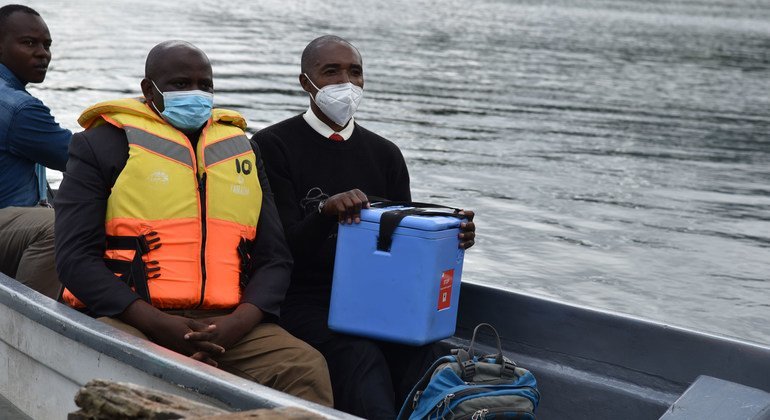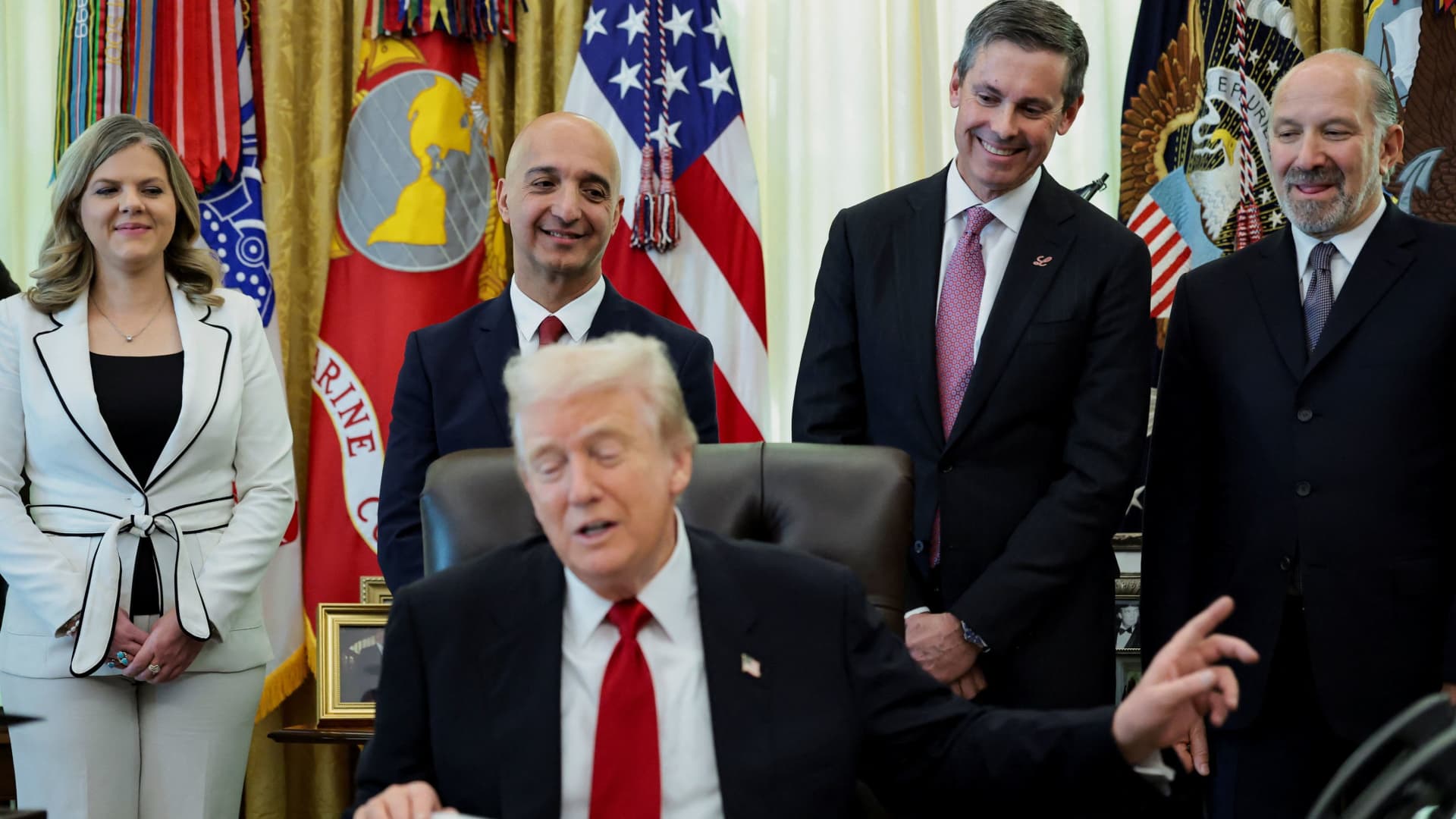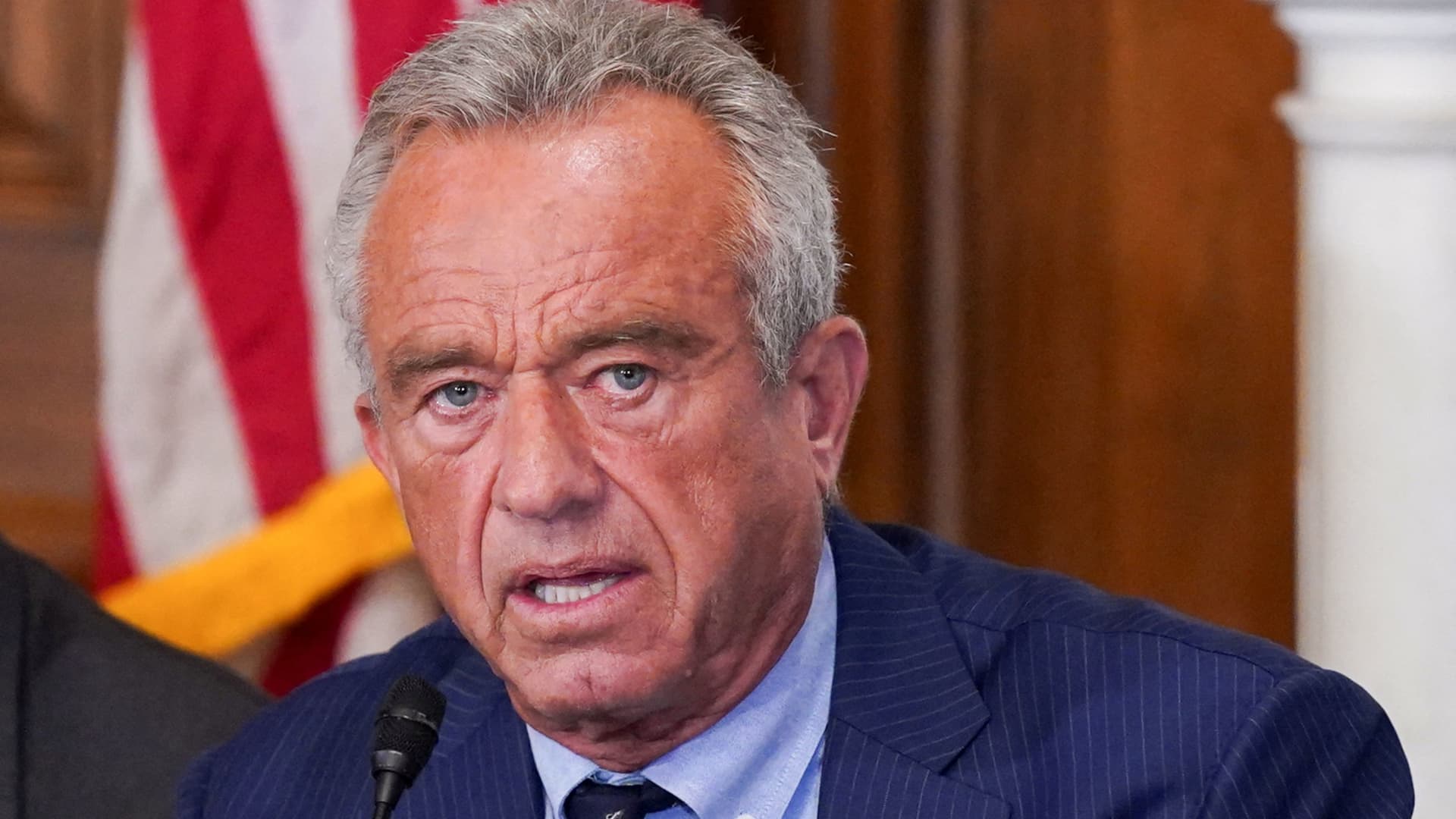He humanly possible The joint global communications campaign aims to boost vaccination programs around the world, with the support of the United Nations World Health Organization (WHO) and the United Nations Children's Fund (UNICEF).
“Thanks to vaccines, more children now survive and thrive past their fifth birthday than at any time in history,” said UNICEF Executive Director Catherine Russell.
Indeed, global immunization programs have demonstrated what is humanly possible when many stakeholders, including world leaders, regional and global health agencies, scientists, charities, aid agencies, businesses and communities, work together.
WHO Director-General Tedros Adhanom Ghebreyesus said: ““Vaccines are among the most powerful inventions in history.”making previously feared diseases preventable.
“Thanks to vaccines, smallpox has been eradicated, polio is on the brink and with the most recent development of vaccines against diseases such as malaria and cervical cancer, We are expanding the frontiers of the disease.“He said. “With continued research, investment and collaboration, we can save millions more lives today and in the next 50 years.”
A child receives a dose of the polio vaccine in Madagascar.
154 million lives already saved
Landmark study to be published in British medical journal The lancet reveals that global immunization efforts have already saved approximately 154 million lives over the past five decades, 101 million of them babies.
That's six lives saved every minute of every year for the past 50 years.
Led by the WHO, the study showed that Immunization is the greatest contribution of any health intervention. to ensure that babies not only reach their first birthday but continue to lead healthy lives into adulthood.
Measles vaccines had the most significant impact on reducing child mortality, according to the study, which also showed that vaccination against measles and 13 other diseases – including diphtheria, polio, rubella, tetanus, tuberculosis and yellow fever – It directly contributed to reducing child deaths by 40 percent globally. and by more than 50 percent in the African region over the last half century.
For every life saved through immunization, an average of 66 years of full health was achieved, with a total of 10.2 billion full health years gained over the five decadeswrote the authors of the study, which is expected to be published before the 50th anniversary of the Expanded Program on Immunization (EPI) next month.

Girls wait their turn to get vaccinated at Rusung Raya Primary School in Indonesia.
Protect a generation of children
In 2000, WHO, UNICEF and the Bill & Melinda Gates Foundation were founding principal members of Gavi, the vaccine alliance, which was created to expand the impact of the EPI and help the world's poorest countries increase vaccination. coverage; benefit from new, life-saving vaccines and expand the scope of protection against an increasing number of vaccine-preventable diseases.
Today, Gavi has helped protect an entire generation of children and now provides vaccines against 20 infectious diseasessaid the alliance's executive director, Dr. Sania Nishtar.
“In just over two decades, we have seen incredible progress, protecting more than a billion childrenhelping to halve child mortality in these countries and providing billions in economic benefits,” he said.
Delivering vaccines along the last mile
UNICEF, one of the world's largest buyers of vaccines, purchases more than two billion doses each year on behalf of countries and partners to reach almost half of the world's children.
To increase immunization coverage, UNICEF is also working to distribute vaccines up to the last mile, sometimes using camels, to ensure that even remote and underserved communities have access to immunization services.
The head of the agency said it is about working together.
“We must build on the momentum and ensure that every child, everywhere, has access to life-saving vaccines,” Ms Russell said.
That is the ultimate goal of World Immunization Week: that more people and their communities are protected from vaccine-preventable diseases. Find out more about what's happening this week here.
- Promote mental health and well-being and strengthen substance abuse prevention and treatment.
- Reduce the number of deaths and illnesses from pollution, pollution and tobacco.
- Achieve universal health coverage and provide access to essential and affordable vaccines and medicines.
- Reduce the global maternal mortality rate to less than 70 per 100,000 live births and under-five mortality to at least 25 per 1,000 live births.
- End the AIDS, tuberculosis and malaria epidemics and combat hepatitis and other communicable diseases.
Sustainable development depends on ensuring healthy lives and promoting well-being at all ages.

